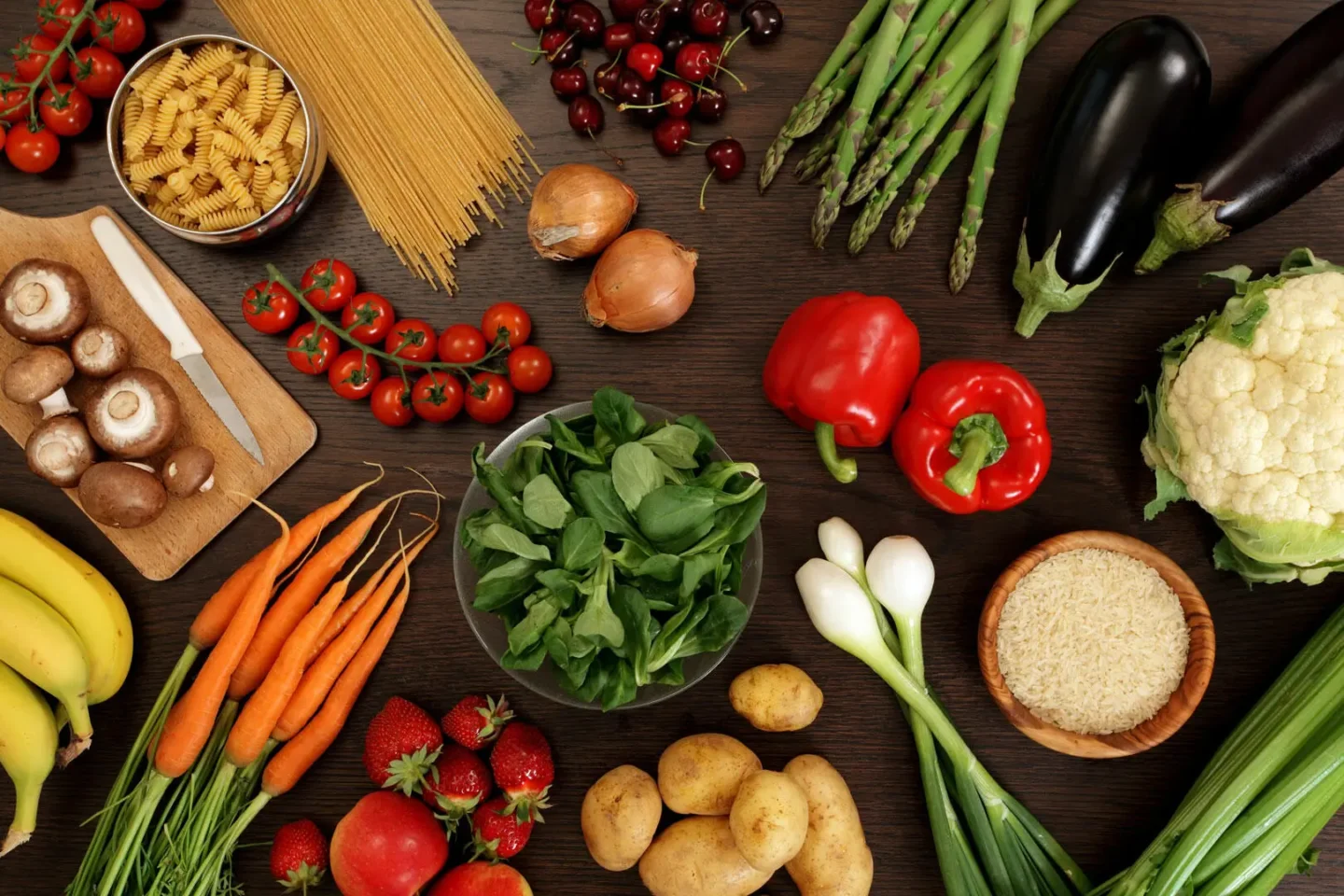With a healthy and varied diet vegetarians usually have no nutrient deficiencies to fear. Vegetarians should pay attention to nutrients [...]

Are you happy going meatless as a vegetarian? Here are the advantages and disadvantages of a vegetarian diet
For a balanced diet, you should always be very careful with the food you eat.
Happy as a vegetarian without meat? Advantages and disadvantages of a vegetarian diet
Meat eaters have many prejudices against people who consciously abstain from meat and meat products. There are those who believe that a vegetarian diet has many disadvantages such as the limited food options and the lack of variety with meals. For these reasons, it is sometimes claimed that vegetarians have an unhealthy diet or have a diet that is impractical. However, could it be that there are many advantages to the vegetarian diet? As a vegetarian, you can eat unhealthy food, just as you can as a meat eater. Anyone who eats unhealthy food and does not give his or her body sufficient nutrients and vital substances can be said to have an unhealthy diet. However, what are the benefits of the vegetarian diet? In reality, there are advantages associated with vegetarianism since those who eat a balanced and varied vegetarian diet usually have a better state of health than meat eaters.
The different types of vegetarianism
Vegetarian benefits – Depending on individual eating habits, different forms of vegetarianism are distinguished:
- Ovo-vegetarians: reject meat, fish, and dairy products, but eat eggs.
- Lacto-vegetarians: abstain from meat, fish, and eggs, but dairy products are allowed.
- Ovo-Lacto vegetarians: do not eat meat and fish, but do eat eggs and dairy products.
- Pescetarians: reject meat and meat products, but eat fish.
- Vegans: eat exclusively herbal foods.
According to the German Nutrition Society (DGE for short in German), a meat-free diet is possible without exceptions. The DGE recommends a balanced and varied ovo-lacto-vegetarian diet as a permanent diet.
The basic components of a vegetarian diet
For a balanced diet, you should be very careful about the foods you eat every day. Both meat eaters and vegetarians need an adequate supply of nutrients and vital substances.
Meat is regarded as an important source of protein, which is of course missing in a vegetarian diet. However, this does not have to be a perpetual problem for vegetarians. In reality, you can also cover your daily protein requirements (50 to 60 g) with vegetable protein coming from foods such as nuts, pulses, cereals, and soy products as well as eggs, cheese, and other dairy products.
Iodine is an important component of thyroid hormones and is essential for your metabolism. You can cover your iodine needs with dairy products, seaweed, and iodized salt.
Omega-3 fatty acids belong to the group of polyunsaturated fatty acids and are considered “good fats.” They cannot be produced by the human body itself, so you have to take them with your food. Many fish such as mackerel, herring, and salmon are rich in omega-3 fatty acids. Vegetarians get their essential fatty acids from vegetable oils such as linseed, rapeseed, and walnut oil.
Our body needs iron, particularly for oxygen transport in the blood. For sufficient iron intake (10 to 15 mg a day), it is recommended to eat many nuts, pulses, and cereal products. A combination of wholemeal products or pulses with fruit and vegetables is a good choice.
As a trace element, zinc contributes to the activation of enzymes and hormones and is important for wound healing. Zinc is absorbed by eating whole grain cereals, legumes, nuts, and seeds (e.g. sesame, pumpkin, and cashew nuts).
Vitamin B12 supports blood formation and metabolism. It is only found in some animal-based and fortified foods. Those who regularly consume eggs and dairy products usually consume sufficient vitamin B12. The recommended daily amount is 3 micrograms. Vitamin B12-enriched dietary supplements offer another way of meeting the recommended daily amount.
Pros and cons of vegetarianism
All forms of nutrition – including vegetarianism – have their advantages and disadvantages.
Vegetarian benefits
- So-called diseases of civilisation resulting from an unhealthy diet are less common in vegetarians (e.g. cardiovascular diseases, high blood pressure, diabetes, gout).
- The body absorbs less saturated fat and cholesterol.
- Constipation and intestinal diseases are rarer.
- A vegetarian diet protects the environment and earth’s resources.
- Many vegetarians feel better, fitter, and healthier.
Disadvantages for vegetarians
- An unbalanced diet can cause vitamin deficiency symptoms.
- In order to prevent nutrient deficiencies, vegetarians have to make greater efforts to feed themselves and acquire a great deal of knowledge about food.
- You must regularly check to make sure you are getting a sufficient supply of iron, zinc, protein, iodine, and vitamin B12.
- A varied vegetarian diet is often associated with additional costs.
- Vegetarians often have a harder time in restaurants than meat eaters (e.g. not so much choice in restaurants or canteens)
- Sources:
- Ernährung: Was fleischarm essen bewirkt | Apotheken-Umschau
- Melina V, Craig W, Levin S. (2016) Position of the Academy of Nutrition and Dietetics: Vegetarian Diets. J Acad Nutr Diet. 116(12):1970-1980. doi: 10.1016/j.jand.2016.09.025.
- Whiteman, Honor. (2016) “Vegetarian diets best for health and the environment, say Nutritionists. “Medical News Today. MediLexicon, Intl.
- Hunt JR. (2003) Bioavailability of iron, zinc, and other trace minerals from vegetarian diets. Am J Clin Nutr. 78(3 Suppl):633S-639S. doi: 10.1093/ajcn/78.3.633S
- Tomova A, Bukovsky I, Rembert E, Yonas W, Alwarith J, Barnard ND, Kahleova H. (2019) The Effects of Vegetarian and Vegan Diets on Gut Microbiota. Front Nutr.;6:47. doi: 10.3389/fnut.2019.00047
- Vegetarismus – Gründe, Formen, Vor- und Nachteile | gesundheit.de



